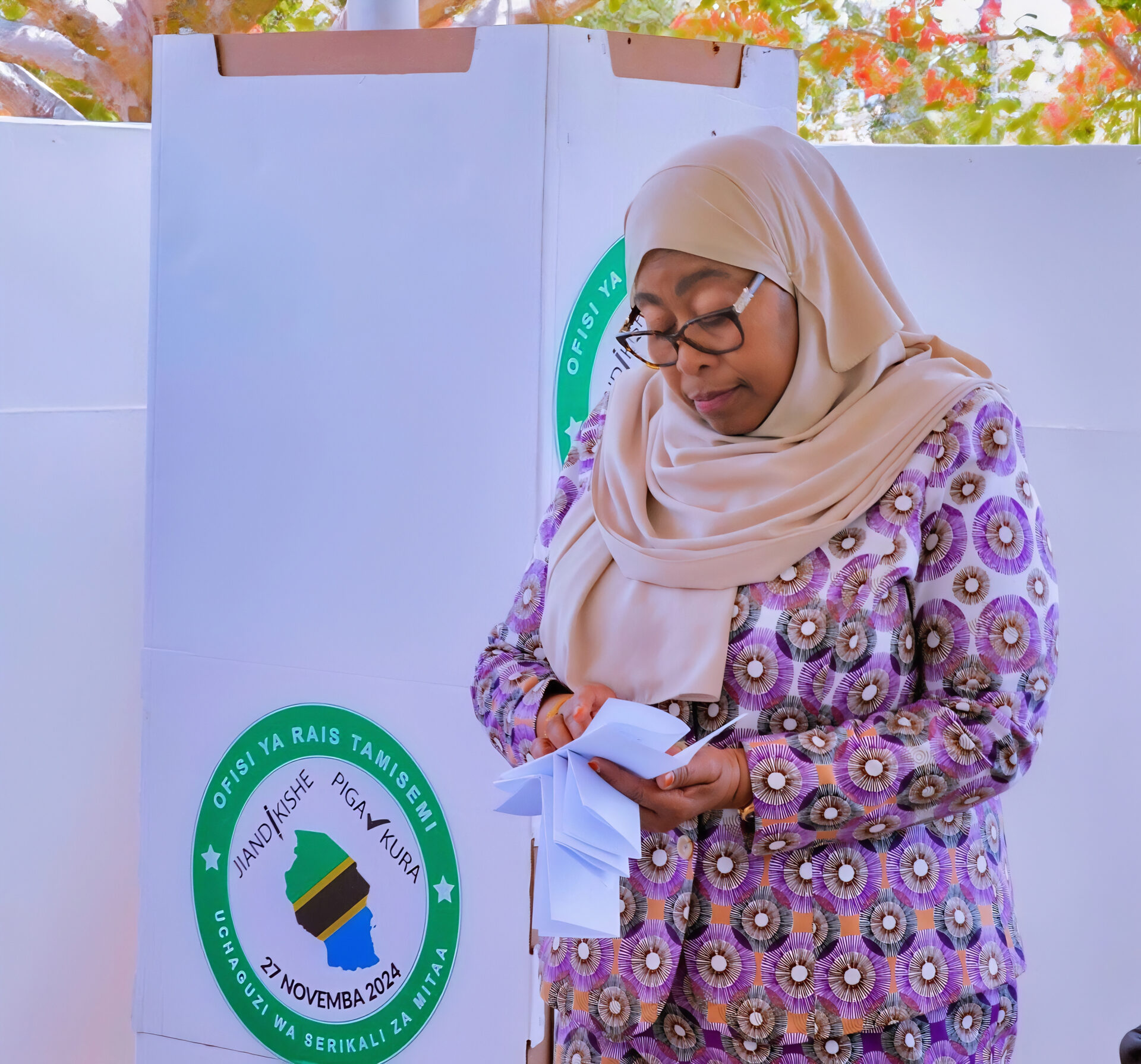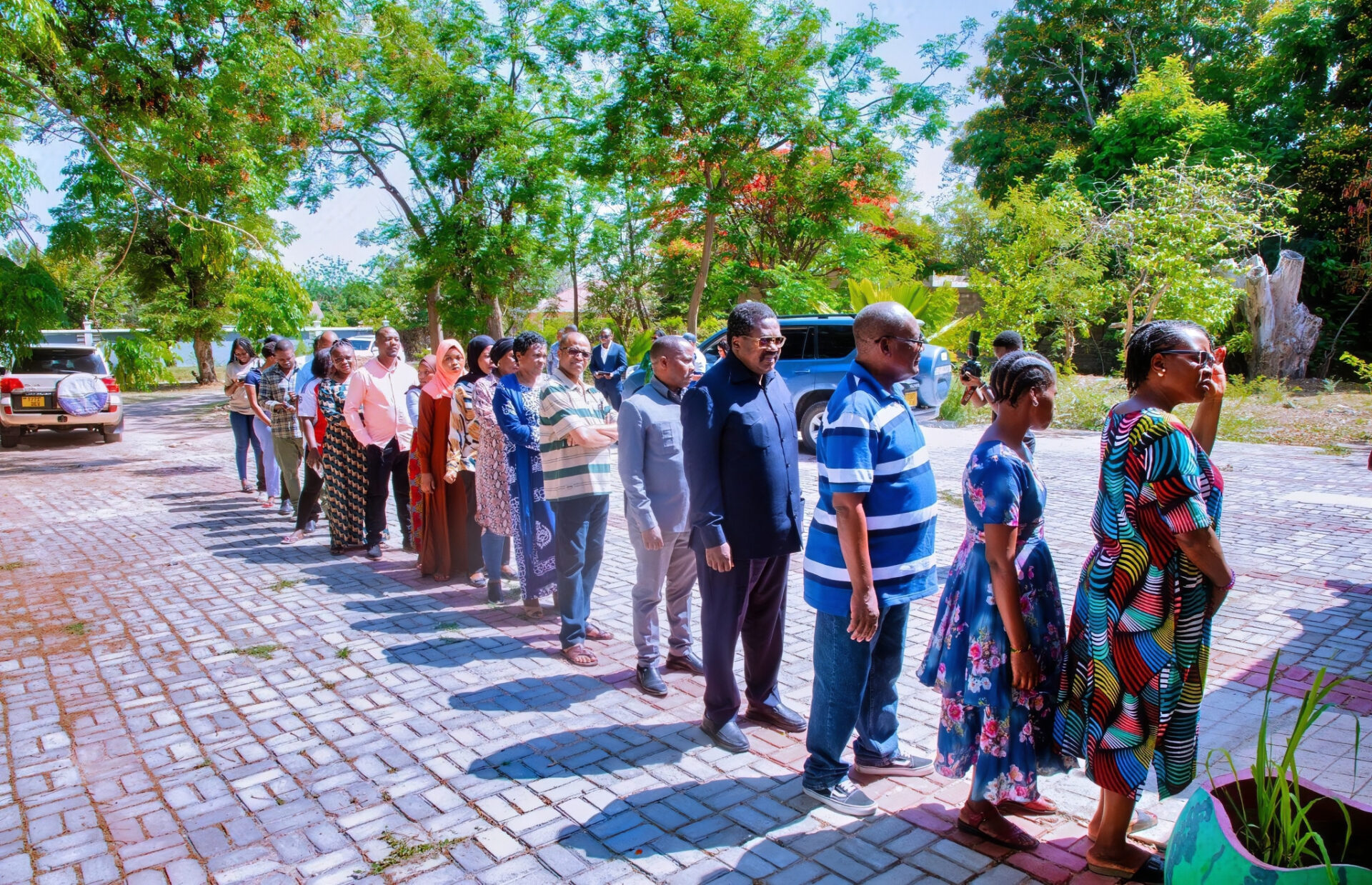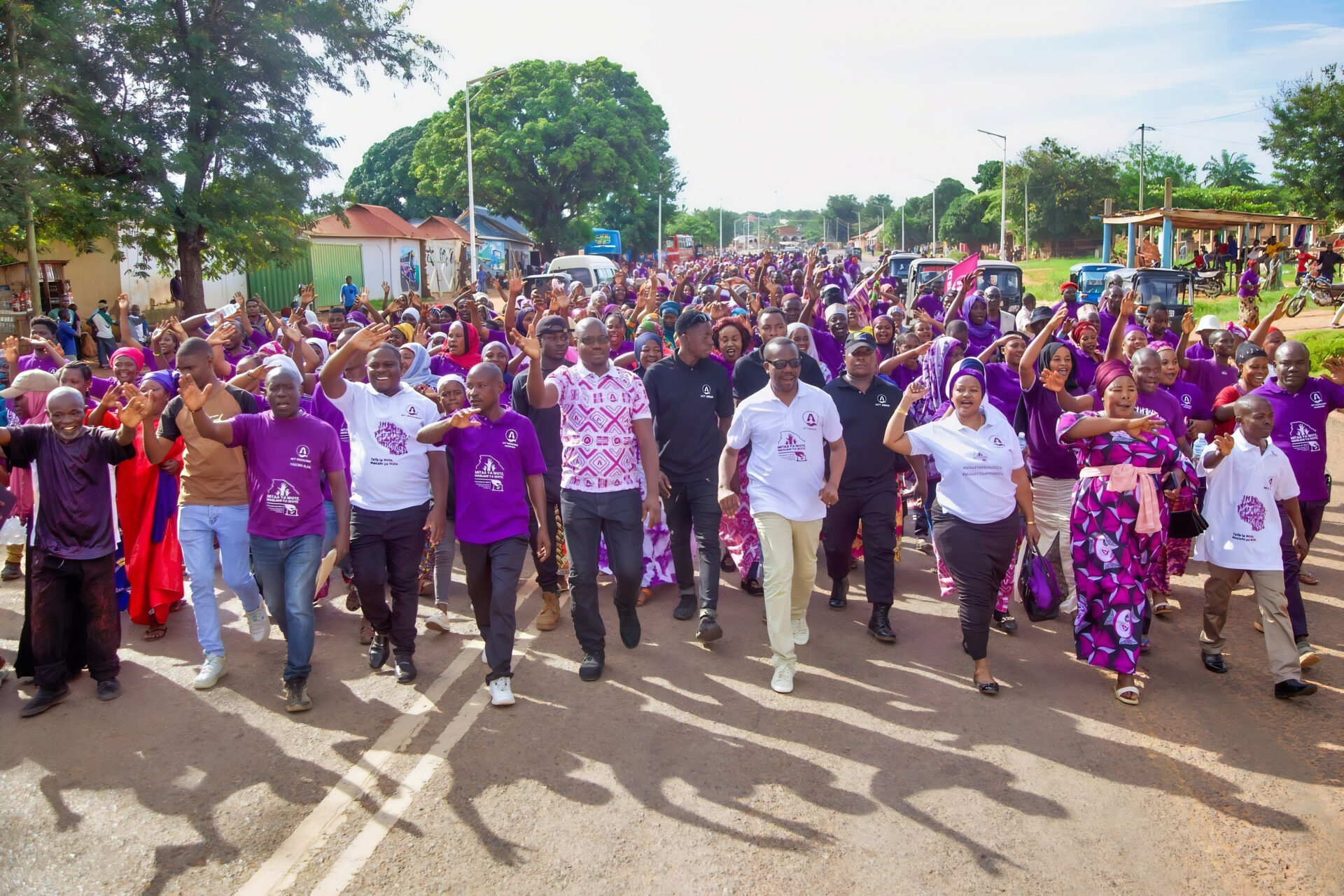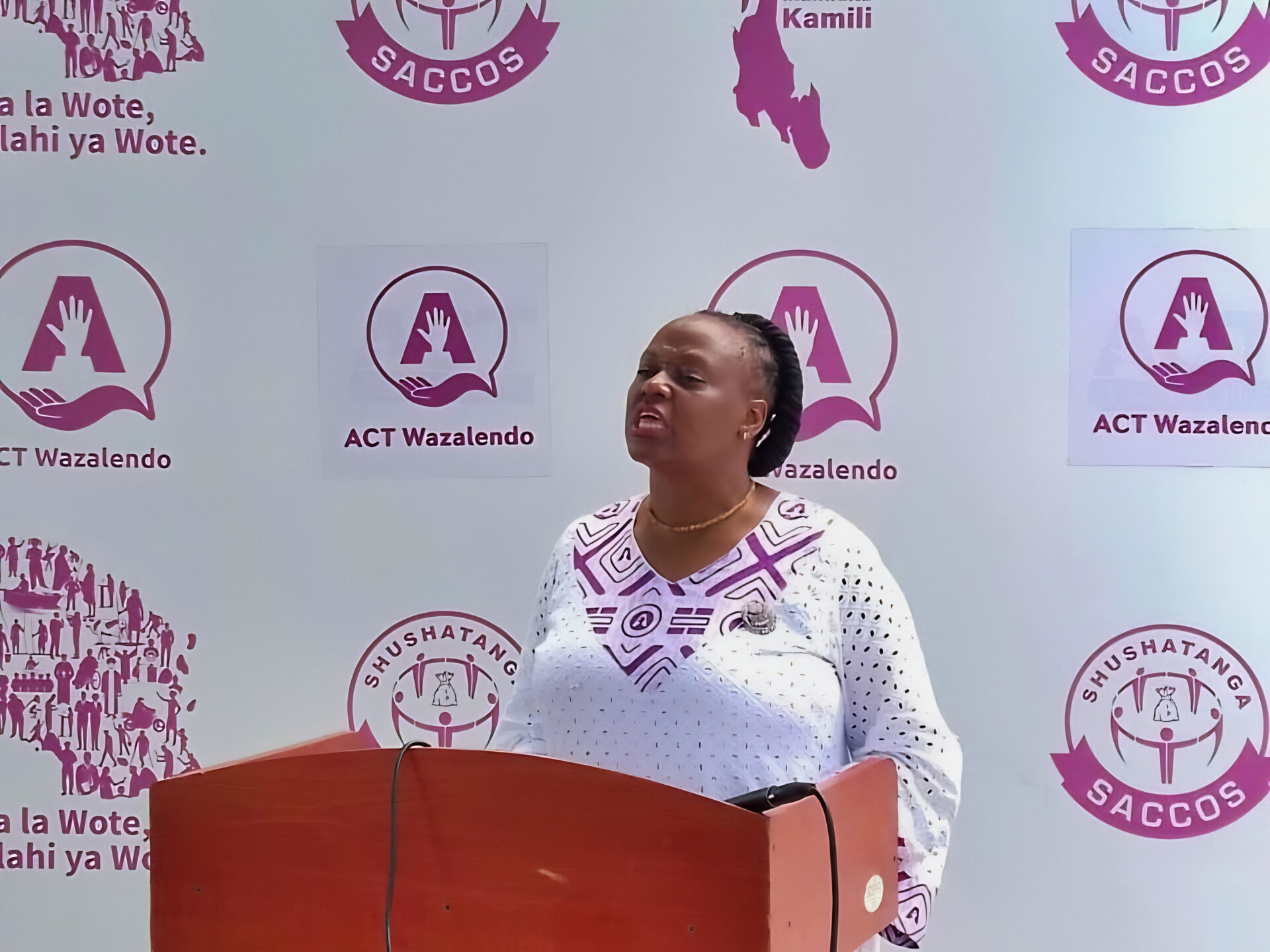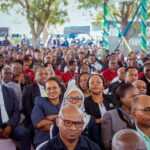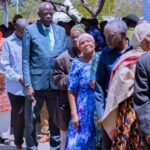Tanzania’s Ruling Party Reinforces Dominance: CCM Victory Raises Questions of Competitiveness
The Honourable Mohamed Mchengerwa, Minister of Regional and Local Government, has announced that the Revolutionary Party, Chama Cha Mapinduzi (CCM), has achieved a decisive victory in the Local Government Elections held on 27 November 2024. The Minister stated that Chama Cha Mapinduzi (CCM) secured an overwhelming 12,150 seats, representing a staggering 99.01% of the total seats available.

This announcement serves to reinforce the dominant position of Chama Cha Mapinduzi (CCM) within the country’s political landscape. The magnitude of their victory indicates a considerable level of support from the electorate, or at the very least, a perception of such support. The Minister’s declaration is likely to be seen as evidence of the party’s organisational strength and its ability to mobilise voters effectively.
However, this overwhelming victory also gives rise to questions regarding the competitiveness of the elections. A victory by such a significant margin could be perceived by some as an indication of a lack of viable opposition or potential issues within the electoral process itself. Some commentators have suggested that these results are indicative of an electoral environment that does not fully accommodate a multi-party democracy.
ACT Wazalendo has expressed its deep reservations regarding the electoral results in Tanzania. ACT Wazalendo, a leading political party in Tanzania, has demanded the nullification of the recently announced election results and new elections due to alleged manipulation. The party maintains that the announced results do not accurately reflect the will of the people, citing alleged manipulation and irregularities in the electoral process. ACT Wazalendo’s position calls into question the legitimacy of the declared winners and emphasises the necessity for electoral transparency and accountability. The party is requesting that the results be nullified and that new elections be held to ensure fairness and integrity.
The announcement by Honourable Mchengerwa is not merely a statement of victory; it is also a reflection of the broader political dynamics at play. It draws attention to the difficulties encountered by opposition parties in gaining ground and the possibility of requiring electoral reforms to guarantee a more balanced and fair political competition.
2024 Local Government Elections: Voter Turnout and Participation
A total of 26,963,182 citizens participated in local government elections in 2024. The voter registration exercise was conducted from 11 to 20 October 2024, resulting in a total of 31,282,331 registered voters. Of these, 16,045,559 were women and 15,236,772 were men.
In addition, in accordance with Regulation 12 of Government Proclamations No. 571, 573 and 574, and Regulation 11 of Government Proclamation No. 572, a period was allowed for citizens to raise objections to registered citizens. Once all objections had been addressed, the number of verified voters was 31,255,303.
The objections to registration were due to a number of reasons, including instances where citizens were not residents of the relevant areas and others registering in areas where they carry out their economic activities instead of their residential areas. Furthermore, 26,963,182 citizens voted on 27 November 2024, representing 86.36% of those eligible to vote.
Detailed Election Results in Tanzanian Regions
In the Tanzanian regions that held elections on 27 November 2024, a total of 12,271 out of 12,280 positions were contested for the role of Village Chairman. The results of the elections demonstrate the significant influence of the Revolutionary Party (CCM) and the distribution of seats among other political parties.
CCM’s Dominance: CCM was victorious in 12,150 of the contested positions, representing a success rate of 99.01%. This decisive victory is a testament to the party’s robust organisational capabilities and its proficiency in voter mobilisation. The extent of their success indicates a considerable level of support from the electorate, or at the very least, a perception of such support.
CHADEMA’s Performance: The opposition party, CHADEMA, secured 97 positions, representing 0.79% of the total. While this represents a relatively modest proportion in comparison to CCM’s success, it demonstrates that CHADEMA continues to maintain a presence and a degree of support among the electorate. The results demonstrate the difficulties encountered by opposition parties in establishing a presence in a political environment dominated by CCM.
ACT Wazalendo’s Results: ACT Wazalendo achieved 11 positions, representing 0.09% of the total. Despite the limited number of seats won, this result demonstrates the party’s resilience and determination to compete in a challenging environment. It also demonstrates their capacity to engage with voters in specific locations, even if on a limited basis.
UF’s Outcome: The United Front (UF) secured 10 positions, representing 0.08% of the total. Similarly to ACT Wazalendo, UF’s performance demonstrates their strategic efforts to gain a foothold in the political arena, despite the overwhelming dominance of CCM.
Other Parties: The NCCR Mageuzi, UMD, and ADC each secured one position, representing 0.01% of the total. The results demonstrate the continued presence of smaller political parties in the electoral process, although their impact remains minimal in comparison to that of the larger parties.
Injuries and Fatalities During Elections – Amos Makalla’s Statement
Amos Makalla, the NEC Secretary for Ideology, Politics, Publicity, and Training, addressed the media at a press conference held at the CCM Lumumba Sub-Office in Dar es Salaam. He highlighted that the violence during the elections had a significant impact on individuals across the political spectrum, with CCM cadres also among those injured and killed. Mr Makalla urged all Tanzanians to unite in condemning these acts of violence and to refrain from taking sides when denouncing such incidents.
Makalla’s statement draws attention to the fact that election-related violence is not limited to a particular political group. By acknowledging that members of the ruling party, CCM, also suffered injuries and fatalities, he aimed to foster a sense of national unity and collective condemnation of violence, regardless of political affiliation. This approach aims to overcome the limitations of partisan politics and foster a unified stance against electoral violence.
Furthermore, Makalla’s appeal for unity in condemning violence highlights the necessity for a peaceful and democratic electoral process. He encouraged Tanzanians to consider the underlying issue of violence rather than attributing blame to particular groups. It is of the utmost importance to convey this message in order to maintain social cohesion and prevent further escalation of tensions.
The press conference at the CCM Lumumba Sub-Office provided an opportunity for Makalla to address these critical issues and appeal to the public’s sense of justice and fairness. His objective was to reinforce the importance of a peaceful electoral environment and the collective responsibility of all citizens to uphold democratic principles.
CCM’s Justification for Electoral Success
The Revolutionary Party, Chama Cha Mapinduzi (CCM), has identified four key factors that contribute to its sustained electoral success in local government elections. These reasons include the presence of internal conflicts within opposition parties, which they argue has resulted in a lack of trust and support for opposition candidates among the electorate. CCM believes that its stability and consistent performance have earned it the trust and votes of Tanzanians.
- Internal Conflicts in Opposition Parties: CCM highlights the internal conflicts and divisions within opposition parties as a key factor in their own success. They contend that these internal conflicts have undermined the opposition’s ability to present a unified front and gain the trust of voters. The internal divisions within the opposition are identified as a key factor influencing voter support for CCM.
- Stability and Consistent Performance: CCM places significant emphasis on their proven track record of stability and consistent performance in governance. They believe that their ability to deliver on promises and maintain a stable political environment has earned them the trust and confidence of the electorate. The aforementioned reliability and effectiveness in governance are identified as the primary factors contributing to their electoral success.
- Development Initiatives and Public Services: The party showcases its diverse portfolio of development initiatives and enhancements to public services, which serve as tangible proof of its unwavering dedication to the well-being of the people. They contend that their endeavours in domains such as infrastructure development, healthcare and education have resonated with the electorate, resulting in sustained endorsement of CCM candidates.
- Effective Campaign Strategies: CCM attributes its electoral success to the effectiveness of its campaign strategies. They believe that their ability to communicate their achievements and plans to the electorate, as well as their grassroots mobilisation efforts, have been instrumental in securing votes. The party’s well-organised and strategic approach to campaigning is seen as a key factor in their continued success in local government elections.
ACT Wazalendo’s Victory in Tandika Ward
In the wake of the recent local government elections, the Revolutionary Party (CCM) has emerged as the dominant force. However, the ACT Wazalendo party has made a noteworthy achievement in Nyambwela Street, Tandika Ward, Temeke Constituency. This result is noteworthy in that it demonstrates the party’s resilience and capacity to gain support even in areas where the political landscape is heavily biased in favour of CCM.
In Nyambwela Street, the street chairman and all members of the street government are now affiliated with ACT Wazalendo. This victory is a testament to the party’s success in grassroots mobilisation and its ability to connect with voters on a local level. This outcome demonstrates that, despite the challenges posed by a dominant ruling party, ACT Wazalendo can still make meaningful inroads and gain the trust of the electorate.
This win in Tandika Ward is not merely a symbolic achievement; it is also a strategic one. This provides ACT Wazalendo with a strategic foothold in a key constituency, allowing them to exert influence over local governance and advocate for their policies and initiatives. Furthermore, this outcome serves to boost morale within the party and among its supporters, demonstrating that their efforts can yield tangible results.
Furthermore, this victory could have wider implications for the political landscape. This outcome may encourage other opposition parties and candidates to persevere and continue their efforts to challenge the status quo. Furthermore, it highlights the significance of local elections as a conduit for political engagement and transformation, even in the face of formidable challenges.
-
ACT Wazalendo’s Opinion on Election Results
ACT Wazalendo has expressed significant reservations regarding the election results announced by Comrade Mohamed Mchengerwa, the Minister of Regional and Local Government Affairs. The party believes that the announced results do not accurately reflect the true outcome of the election process. They contend that the entire process was manipulated, thereby depriving the people of their fundamental right to freely choose their leaders.
- This assertion by ACT Wazalendo indicates a high level of distrust in the electoral process and the officials responsible for overseeing it. The party asserts that the manipulation of the electoral process has distorted the will of the people, resulting in a discrepancy between the announced results and the actual votes cast. This perceived manipulation calls into question the integrity of the electoral system and raises serious questions about the legitimacy of the elected officials.ACT Wazalendo’s position underscores the broader issue of electoral transparency and fairness. By contesting the announced results, the party is drawing attention to the necessity for reforms in the electoral process to guarantee that future elections are conducted in a manner that is free, fair, and transparent. They are proposing measures to restore public confidence in the electoral system and ensure that the true will of the people is reflected in the election outcomes.Furthermore, ACT Wazalendo’s position highlights the importance of accountability in the electoral process. They are demanding that those responsible for the alleged manipulation be held to account and that steps be taken to prevent such issues from occurring in the future. This call for accountability is crucial in maintaining the integrity of the democratic process and ensuring that the rights of the electorate are protected.
-
Call for Nullification and New Elections
ACT Wazalendo is calling for the nullification of the electoral process, which they allege to be corrupt. They contend that the integrity of the recent local government elections has been significantly undermined, and therefore, the results do not accurately reflect the true will of the people. The party is calling for new elections to be held for local governments, villages, and sub-districts under a new election law to be established by the Independent Electoral Commission.
This call for nullification and new elections demonstrates ACT Wazalendo’s commitment to ensuring a transparent and fair electoral framework. They believe that the current system is flawed and susceptible to manipulation, which undermines the democratic process and presents a risk to the integrity of the electoral process. By advocating for the introduction of a new election law, they aim to establish a more robust and transparent system that can restore public confidence in the electoral process.
- The party’s demand for new elections is also indicative of their broader vision for democratic reform. Their objective is not merely to overturn the results of a single election, but rather to implement systemic changes that will ensure the integrity of future elections. This includes the establishment of an Independent Electoral Commission that is free from political influence and capable of overseeing elections in a fair and impartial manner.Furthermore, ACT Wazalendo’s position emphasises the significance of accountability in the electoral process. They are requesting that those responsible for the alleged corruption and manipulation be held to account and that measures be implemented to prevent such issues from occurring in the future. It is vital that those involved in the democratic process are held to account in order to maintain its integrity and protect the rights of the electorate.ACT Wazalendo’s call for the nullification of the election process and the holding of new elections is an explicit statement of their objective to establish a more transparent and fair electoral framework. They are dedicated to promoting reforms that will rebuild public trust in the democratic process and guarantee that the genuine will of the people is reflected in the election outcomes.
-
Collaboration with Political Parties and Civil Society
ACT Wazalendo is committed to working with other political parties and civil society organisations to tackle electoral corruption and the shortcomings of the electoral management systems. By forming a unified front, they aim to protect the democratic process and guarantee that future elections are conducted fairly and transparently.
This collaborative approach demonstrates ACT Wazalendo’s recognition of the importance of collective action in addressing systemic issues. By forming a strategic alliance with other political entities and civil society groups, they aim to leverage resources, expertise and influence to combat electoral corruption. This unified approach is vital for developing a robust and effective opposition capable of challenging the status quo and advocating for meaningful reforms.
- The collaboration with civil society organisations is of particular importance. These organisations often have a long history in the community and a strong grasp of the local context. They can provide valuable insights and support in identifying and addressing the specific issues that undermine the electoral process. By working together, political parties and civil society can develop comprehensive strategies to tackle corruption and improve the overall integrity of the electoral system.Furthermore, this partnership is designed to cultivate a culture of transparency and accountability. By promoting electoral reform and monitoring the electoral process, they can help guarantee that future elections are conducted in a manner that is free, fair and transparent. This includes advocating for the formation of an independent electoral commission, implementing more rigorous regulations to prevent electoral fraud, and promoting greater public awareness and engagement in the democratic process.
ACT Wazalendo’s plan to collaborate with other political parties and civil society organisations reflects their commitment to safeguarding the democratic process. By forming a unified front, they aim to address the root causes of electoral corruption and ensure that future elections are conducted in a manner that truly reflects the will of the people. -
Boycott of Illegitimate Leaders
ACT Wazalendo is requesting that its members refrain from engaging with local government, village, and sub-district leaders from the Revolutionary Party, Chama Cha Mapinduzi (CCM), who have been declared winners without legitimacy. The objective of this boycott is to delegitimise the current leaders and exert pressure on the authorities to hold new, fair elections.
The party’s call for a boycott is a strategic move designed to undermine the authority and legitimacy of the leaders who have been declared winners through what ACT Wazalendo perceives as a flawed and corrupt electoral process. By declining to engage with these leaders, ACT Wazalendo aims to draw attention to the lack of legitimacy and fairness in the election results, and to highlight the need for electoral reforms.
Furthermore, this boycott represents a form of peaceful protest, demonstrating the party’s commitment to non-violent means of challenging the status quo. This sends a clear message that ACT Wazalendo does not recognise the authority of leaders who have been elected through questionable means and is willing to take a stand to uphold democratic principles.
The objective of the boycott is to mobilise public support and solidarity. By encouraging its members and supporters to refrain from engaging with illegitimate leaders, ACT Wazalendo aims to build a broad coalition of citizens who are committed to demanding fair and transparent elections. This collective action can exert significant pressure on the authorities to address the issues of electoral corruption and to implement necessary reforms.
ACT Wazalendo’s call for a boycott of illegitimate leaders is a strategic and symbolic action designed to delegitimise the current leadership, draw attention to the flaws in the electoral process, and mobilise public support for democratic reforms. This demonstrates the party’s dedication to maintaining the integrity of the democratic process and guaranteeing that the genuine will of the people is reflected in the election results.
ACT Wazalendo’s Commitment to Fighting Electoral Corruption
These points demonstrate ACT Wazalendo’s unwavering commitment to combating electoral corruption and upholding the democratic process in their country. The party is calling for significant reforms and is prepared to take robust action to achieve its goals.
- Advocacy for Electoral Integrity: ACT Wazalendo is committed to ensuring that elections are conducted in a manner that is free, fair, and transparent. They believe that the current electoral process is flawed and susceptible to manipulation, which undermines the democratic principles that the country stands for. By promoting electoral reform, they seek to establish a more robust and transparent electoral framework that can restore public confidence in the democratic process.
- Demand for Accountability: The party is requesting that those responsible for electoral corruption and manipulation be held to account. They consider accountability to be a vital element in maintaining the integrity of the electoral process and ensuring the protection of the electorate’s rights. By demanding accountability, ACT Wazalendo is sending a clear message that any instances of corruption or manipulation will not be tolerated.
- Collaboration with Stakeholders: ACT Wazalendo intends to collaborate with other political parties and civil society organisations to address the issues of electoral corruption and the failures of the electoral management systems. By forming a unified front, they aim to combine resources, share expertise, and amplify their voices in the fight against corruption. This collaborative approach is essential for the creation of a robust and effective opposition capable of advocating for meaningful reforms.
- Boycott of Illegitimate Leaders: The party is requesting that its members refrain from engaging with local government, village, and sub-district leaders from the Chama Cha Mapinduzi (CCM) who have been declared winners without legitimacy. This boycott is intended to delegitimise the current leaders and put pressure on the authorities to hold new, fair elections. By taking this stand, ACT Wazalendo is demonstrating their commitment to upholding democratic principles and ensuring that the true will of the people is reflected in election outcomes.
- Call for New Elections: ACT Wazalendo is calling for the nullification of the flawed electoral process and the immediate organisation of new elections for local governments, villages and sub-districts. They believe that new elections, conducted under a new election law established by the Independent Electoral Commission, are necessary to restore public confidence in the democratic process. This call for new elections demonstrates their commitment to establishing a more transparent and fair electoral framework.
In conclusion, ACT Wazalendo’s actions and demands demonstrate their commitment to combating electoral corruption and safeguarding the integrity of the democratic process in their country. They are calling for significant reforms and are prepared to take robust action to achieve their goals, demonstrating their commitment to upholding the integrity of the democratic process and protecting the rights of the electorate.
Tanzania Media
- Kanyala Ferry Launch: TEMESA’s New Service for 15,000 Sengerema Residents (Mwanza) - 18 August 2025
- Russia-Tanzania Naval Cooperation: How the Smolny Training Ship Boosts Dar es Salaam’s Maritime Security - 18 August 2025
- Tanzania’s ICGLR Commitment: Stabilising the DRC & Great Lakes Region - 18 August 2025



